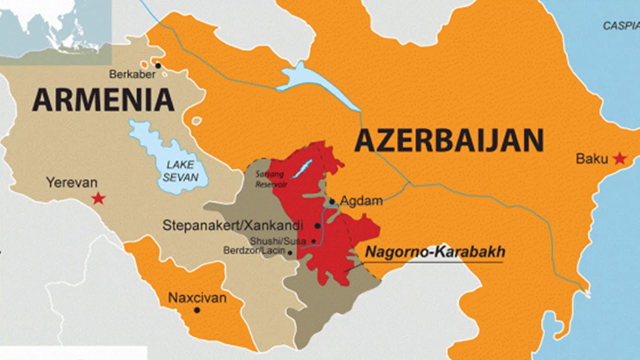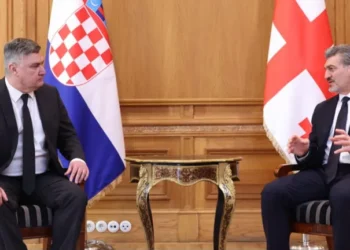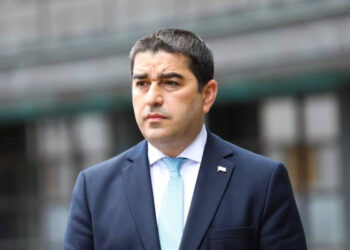Connectivity patterns in the South Caucasus are changing. What used to be a relatively landlocked region, despite its access to the Black Sea, is now opening up, with Turkey and Iran likely to have new railway connections to Russia.
A cornerstone of this change is the November 2020 tripartite agreement between Armenia, Azerbaijan and Russia that ended the Second Karabakh War. Among the provisions, Turkey is set to gain a land corridor from Azerbaijan’s exclave of Nakhchivan to the rest of Azerbaijan via Armenia. The stipulation in the document reads: “Armenia guarantees the security of transport links … [for] unimpeded movement of citizens, vehicles, and cargo in both directions”. Moreover, “Transport control is exercised by the Border Service of the Federal Security Service of Russia. By agreement of the parties, the construction of new transport communications connecting the Nakhchivan Autonomous Republic and Azerbaijan’s western regions will be provided.”
This represents a major breakthrough for Ankara, as it would allow the country to anchor its influence on the Caspian Sea and perhaps, in the longer term, look even further towards its Central Asia kinsmen. Ankara has had this vision since the establishment of the Turkish Republic following World War I, when measures were taken to obtain a direct land corridor to Nakhchivan.
The push for Turkey’s corridor to Azerbaijan paves the way for a Turkish military presence on Azerbaijani soil. The Turkish parliament voted to allow Ankara to send troops to Azerbaijan. Indeed, Ankara has long been working on using the Nakhchivan corridor for geopolitical purposes. Recently, the Turkish government announced plans to build a railway to Nakhchivan, following the earlier announcement of a gas pipeline construction to the exclave. This creates a major dilemma for Iran and Russia, who both historically viewed the Caspian Sea as a condominium between themselves. They also aspired to project their influence over Azerbaijan, which is set to serve as a transit country for the North-South transport corridor, stretching from the Persian Gulf to the Baltics.
A Turkish presence in Azerbaijan disrupts the Russo-Iranian vision. But beyond the military issues, Iran is worried that the new corridor may stoke pan-Turkic sentiments, as a large ethnic group of Azerbaijanis live in the north of the country. Additionally, for Iran, the nascent Nakhchivan corridor could disrupt some of the routes which have been in use since the end of the first Karabakh War in 1994. For instance, where Azerbaijan has been dependent on Iran for transiting energy and other supplies to Nakhchivan, now Armenia will guarantee the opening up of a corridor through its territory to allow Azerbaijan to transport goods directly to the Nakhichivan exclave.
In normal circumstances, a higher level of connectivity is a boon for countries. But in the South Caucasus, it could also be a cause of economic isolation and even isolation or projection of external geopolitical power. Take Armenia, cut off for decades from regional pipelines, roads and a major railway connecting the Caspian and Black seas, and Turkey.
When the new Karabakh agreement was announced, many in Tbilisi began to wonder whether Georgia’s transit capabilities might be challenged. In the short and medium term, no reshuffling in the region’s connectivity patterns is likely to take place. After all, Baku and Ankara already have well-functioning railway and pipeline infrastructure running through Georgia, and Georgia has been officially engaged in the trilateral partnership with Turkey and Azerbaijan for nearly a decade: the endurance of the format has been proven by changes of governments and region-wide geopolitical transformations over that decade. Turkey wants a more stable Georgia, with deeper economic and energy relations, while Azerbaijan needs Turkey’s backing. Georgia, under pressure from Russia and, given that it is located between its two fellow members of cooperation dependent on transit, in turn needs both Turkey and Azerbaijan.
The collective West has a strategic interest in strengthening connectivity to the Caspian region, which would enable more strategic and commercial access to Central Asia while balancing Russian and other powers’ influence. However, following the war in Karabakh, Russian troops are now present in all three South Caucasus states, which can allow it to exercise control over the East-West rail-road and pipeline infrastructure on relatively short notice.
Emil Avdaliani (@emilavdaliani) in the Georgian think tank, Geocase, and teaches history and international relations at Ilia State Univesrity and European University.
Analysis by Emil Avdaliani














